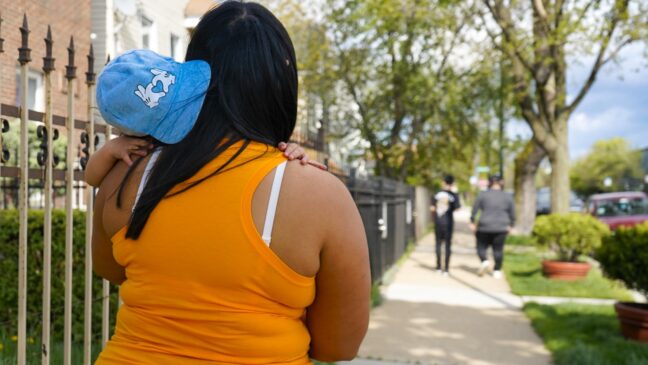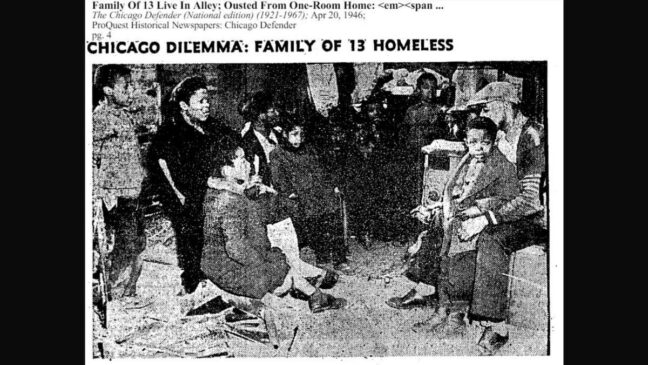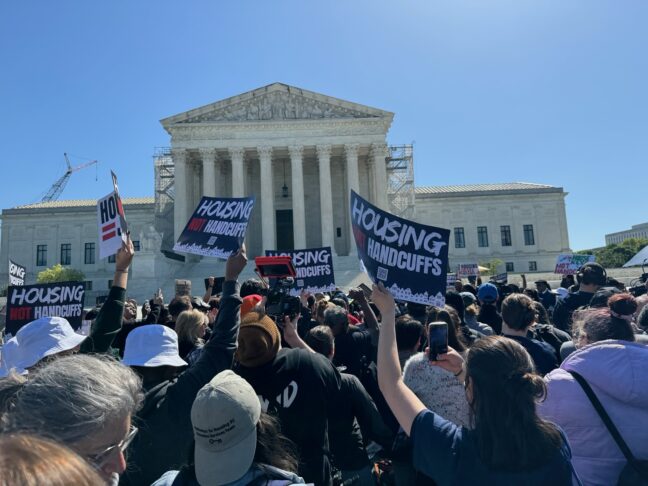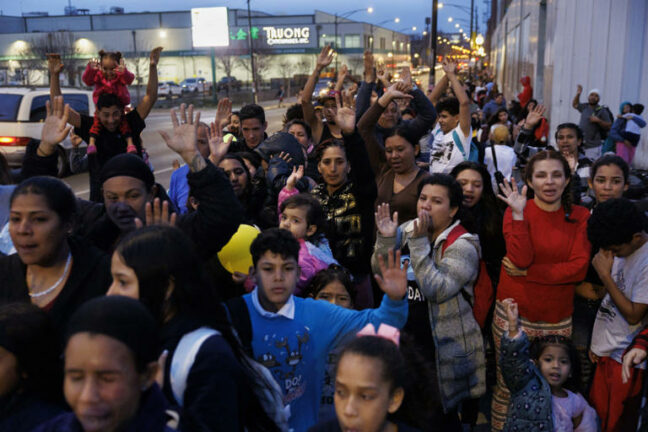By Sam Paler-Ponce, interim associate director of policy
On Monday, April 22, 2024, the U.S. Supreme Court began oral arguments in Johnson v. Grants Pass, a case deciding if cities have the right to penalize people experiencing homelessness for sleeping outdoors.
Listen to the oral argument by clicking here.
The City of Grants Pass argues the city is just following the trend of most other cities, as many cities across the country are already arresting and fining people experiencing homelessness. However, Grants Pass has taken the most extreme posture: there is nowhere, at no time, where people living outside can sleep with things like a blanket or pillow.
Cruel and Unusual Punishment
At the heart of Johnson v. Grants Pass lies the interpretation of constitutional protections against cruel and unusual punishment. In 1962, the Supreme Court weighed in on a similar issue in the case of Robinson v. California. The case struck down a California law that made it a crime to “be addicted to the use of narcotics.”
The court held that the law may not criminalize someone’s status as a person with a substance use disorder and must instead target some kind of criminal act. Therefore, a state may punish a person for the illegal purchase, sale, or possession of narcotics, and—absent any evidence of illegal drug use— the state of California could not punish someone simply for existing with a substance use disorder.
Martin v. Boise
The 2018 case of Martin v. Boise challenged the city of Boise’s enforcement of camping and disorderly conduct ordinances against persons experiencing homelessness—those who need to sleep in public in the absence of adequate housing or shelter.
Now six years ago, the U.S. Supreme Court denied a petition by the city of Boise to review the case Martin v. Boise (formerly Bell v. Boise). This leaves in place earlier rulings under the U.S. Court of Appeals for the Ninth Circuit, which held that people experiencing street homelessness could no longer be arrested simply because they are homeless.
Dozens of court cases have since cited Martin v. Boise, including courts in Florida, Missouri, New York, Ohio, Texas, and Virginia.
Criminalizing Homelessness
As the U.S. Supreme Court prepares to deliberate on this landmark case, the outcome holds significant implications for the quarter of a million people nationwide who find themselves without shelter on any given night. While the case of Johnson v. Grants Pass serves as a focal point for legal debate, it also highlights the systemic failures that perpetuate homelessness nationwide.
In Grants Pass, people are issued $295 tickets for using a blanket to stay warm when they have nowhere else to go. Punitive measures like incarceration and fines exacerbate the issue, rather than resolve it. The real solution lies in ensuring safe, decent, and affordable housing.
Local Insight
Over 1,000 organizations and public leaders across the country have filed more than 40 amicus briefs (“amici”) in support of Gloria Johnson and homeless rights in the landmark case.
An amicus brief is submitted by a person or group not directly involved in a legal case but is permitted to support the court by providing information, expertise, or insight relevant to the case. These briefs, known as “amici,” aim to inform the court about potential public policy consequences of a ruling.
Chicago Coalition for the Homeless, alongside 27 partner organizations, filed an amicus brief, raising the importance of the case and the impact on people experiencing homelessness in Chicago and Illinois.
The U.S. Supreme Court is expected to take a position by June 2024.
View the transcript of the argument by clicking here.









